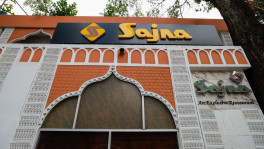FBCCI, CII to sign MoU to maximise bilateral trade
Light engineering, agro-processing, chemical, apparel etc. may be of the highest priority in undertaking bilateral value chain initiatives, the FBCCI president said

A memorandum of understanding between the Federation of Bangladesh Chambers of Commerce and Industries (FBCCI) and the Confederation of Indian Industry (CII) is an initiation of targeted and focused cooperation to maximise bilateral value chain initiative beyond the nations, said FBCCI President Sheikh Fazle Fahim at a recent webinar.
"India and Bangladesh have a bond of heritage, culture, and humanity for ages. And the humane contribution is spearheaded by Bangladeshi Prime Minister Sheikh Hasina and Indian Premier Narendra Modi," he said.
The CII organised the webinar titled "Digital Conference on Doing Business with Bangladesh: Opportunities and Challenges," according to a press release issued on Monday.
The conference aimed to provide a platform to discuss the emerging business and investment opportunities, and the underlying challenges of bilateral trade between Bangladesh and India in the new paradigm shift caused by the ongoing pandemic.
Fahim delivered the inauguration speech at the webinar, which was presided over by Shri V Muraleedharan, union minister of state for external affairs and parliamentary affairs of the government of India.
"Since 2008, we are experiencing shining examples of a positive trend for greater engagements and cooperation, and in 2019, we yielded $9bn in bilateral trade," Fahim said.
Commending leaders of both nations for the humane bilateral contribution in working together to mobilise the Saarc Covid-19 Emergency Fund in which Bangladesh has pledged $1.5million, he said, "From the FBCCI, we look forward to working closely with our Indian counterparts to address the new challenges, and seek your support and cooperation in rebuilding and recovering from this crisis."
The FBCCI has identified the bilateral value chain initiative as the way forward: backward linkage raw material from India to Bangladeshi production, for domestic market, finished goods DFQF market access to India and beyond, reads the press release.
Light engineering, agro-processing, chemical, apparel etc. may be of the highest priority in undertaking bilateral value chain initiatives, according to the FBCCI president.
Highlighting the need for a collaboration, he said, "Land port issues are there which we are confident to work out through public-private engagements. On the innovation front, joint R&D in futures of works applied for skills, knowledge transfer, and JV in the 4th Industrial Revolution, fintech, IoT, robotics, Big Data, Data Analytics, quantum computing, quantum internet etc. are areas where we can work on."
Thanking the ally nation for their support in providing medical supplies and equipment for Bangladesh, Fahim said, "The FBCCI's symbolic goodwill gesture to our friends in India will reach shortly."
Riva Ganguly Das, Indian high commissioner to Bangladesh, said, "Both the nations have expanded infrastructure between both lands to ensure smooth import and export.
She continued, "We now have more options to empower bilateral trade by capitalising on that developed infrastructure. For instance, the vast rail network between the two nations can be a good example. The export and import of goods through the rail network can be beneficial for both the nations."
Abdul Matlub Ahmad, the president of India-Bangladesh Chamber of Commerce and Industry, said, "The trade and business community has been thriving on the friendship between the two countries – a relationship that has led to the development of the two nations both politically and economically. We can do even more."
Md Sirazul Islam, executive chairman of Bangladesh Investment Development Authority, said, "India and Bangladesh are countries that share common roots. It is our closest neighbour and the greatest of allies whose contribution in our Liberation War in 1971 is simply unparalleled in the history of nations. We want to further cement our alliance for our shared economic interest and for the good of our people."
Delivering the keynote speech, Shri V Muraleedharan, said, "Bangladesh has been our biggest South Asian ally. The leaders of both the nations have undertaken several infrastructural transformational projects that have seen business growth in terms of import and export between the countries."
They had seen a fruitful relation within the power and energy sector and both the nations can capitalise on so much more, he added.
Muhammad Imran, Bangladesh high commissioner to India, Chandrajit Banerjee, director general of the CII, and David Rasquinha, managing director of Exim Bank of India, also delivered key justifications of bilateral trade between the two nations in their speeches, adds the press statement.


 Keep updated, follow The Business Standard's Google news channel
Keep updated, follow The Business Standard's Google news channel
















